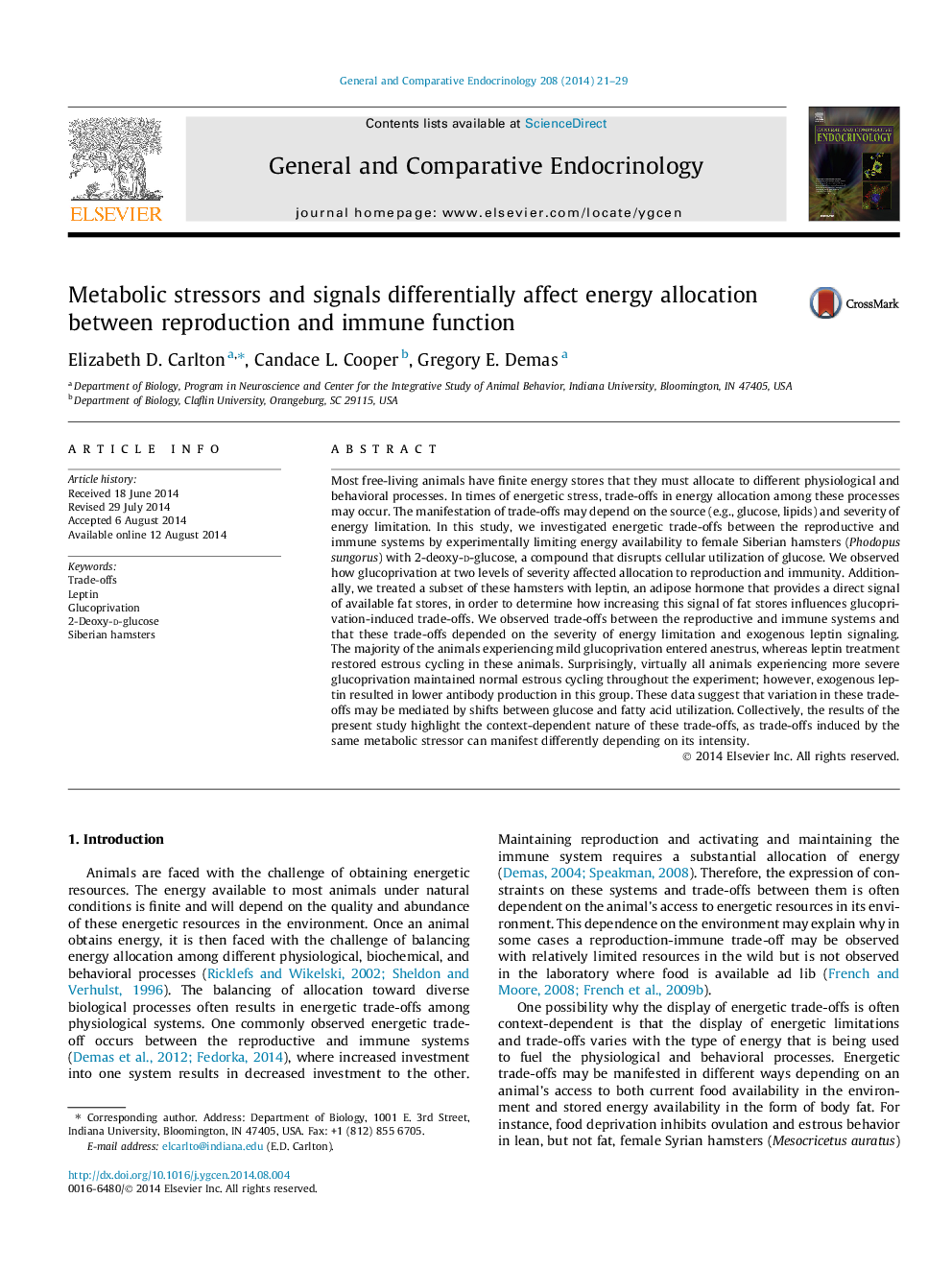| کد مقاله | کد نشریه | سال انتشار | مقاله انگلیسی | نسخه تمام متن |
|---|---|---|---|---|
| 2800122 | 1568897 | 2014 | 9 صفحه PDF | دانلود رایگان |
• We explored interactions between endocrine signals and metabolic stress on physiology.
• We observed how leptin affects glucoprivation induced reproductive-immune trade-offs.
• Mild glucoprivation inhibits estrous cycling while leptin treatment restores cycling.
• Severe glucoprivation suppresses humoral immunity but does not affect estrus.
• Trade-offs may be influenced by shifts in fuel type utilization.
Most free-living animals have finite energy stores that they must allocate to different physiological and behavioral processes. In times of energetic stress, trade-offs in energy allocation among these processes may occur. The manifestation of trade-offs may depend on the source (e.g., glucose, lipids) and severity of energy limitation. In this study, we investigated energetic trade-offs between the reproductive and immune systems by experimentally limiting energy availability to female Siberian hamsters (Phodopus sungorus) with 2-deoxy-d-glucose, a compound that disrupts cellular utilization of glucose. We observed how glucoprivation at two levels of severity affected allocation to reproduction and immunity. Additionally, we treated a subset of these hamsters with leptin, an adipose hormone that provides a direct signal of available fat stores, in order to determine how increasing this signal of fat stores influences glucoprivation-induced trade-offs. We observed trade-offs between the reproductive and immune systems and that these trade-offs depended on the severity of energy limitation and exogenous leptin signaling. The majority of the animals experiencing mild glucoprivation entered anestrus, whereas leptin treatment restored estrous cycling in these animals. Surprisingly, virtually all animals experiencing more severe glucoprivation maintained normal estrous cycling throughout the experiment; however, exogenous leptin resulted in lower antibody production in this group. These data suggest that variation in these trade-offs may be mediated by shifts between glucose and fatty acid utilization. Collectively, the results of the present study highlight the context-dependent nature of these trade-offs, as trade-offs induced by the same metabolic stressor can manifest differently depending on its intensity.
Journal: General and Comparative Endocrinology - Volume 208, 1 November 2014, Pages 21–29
